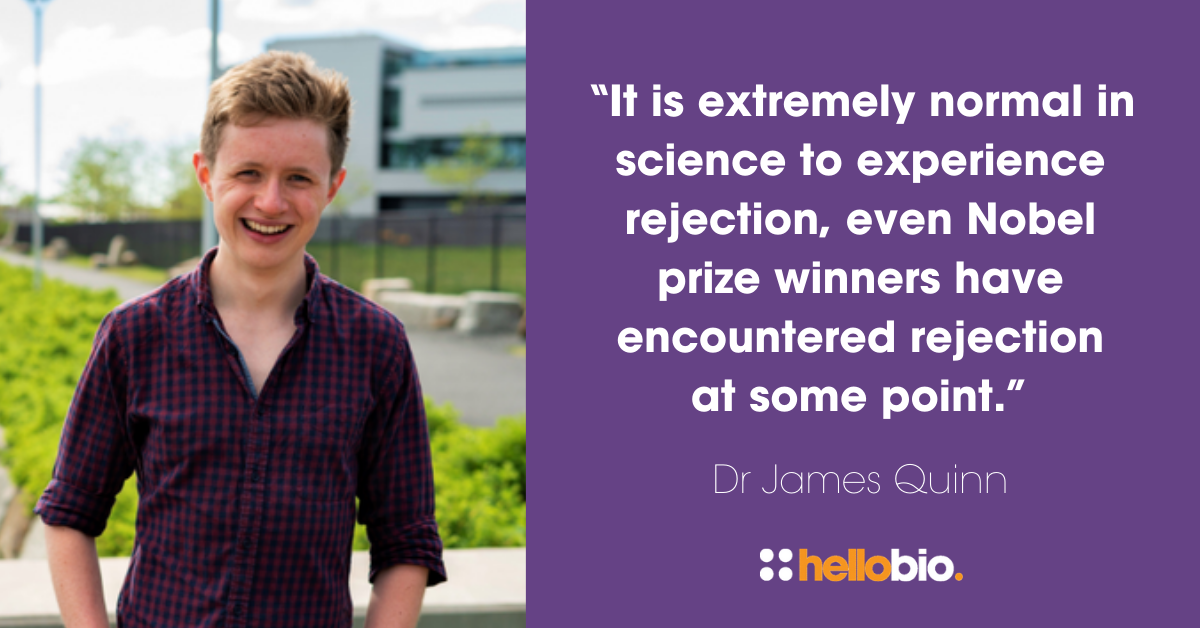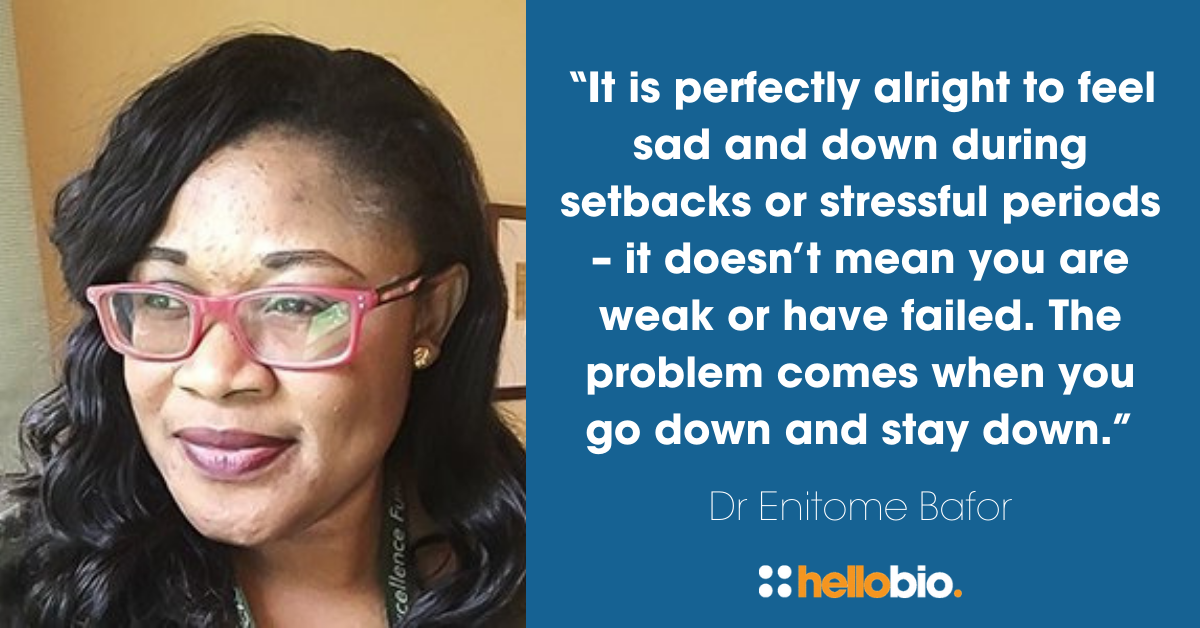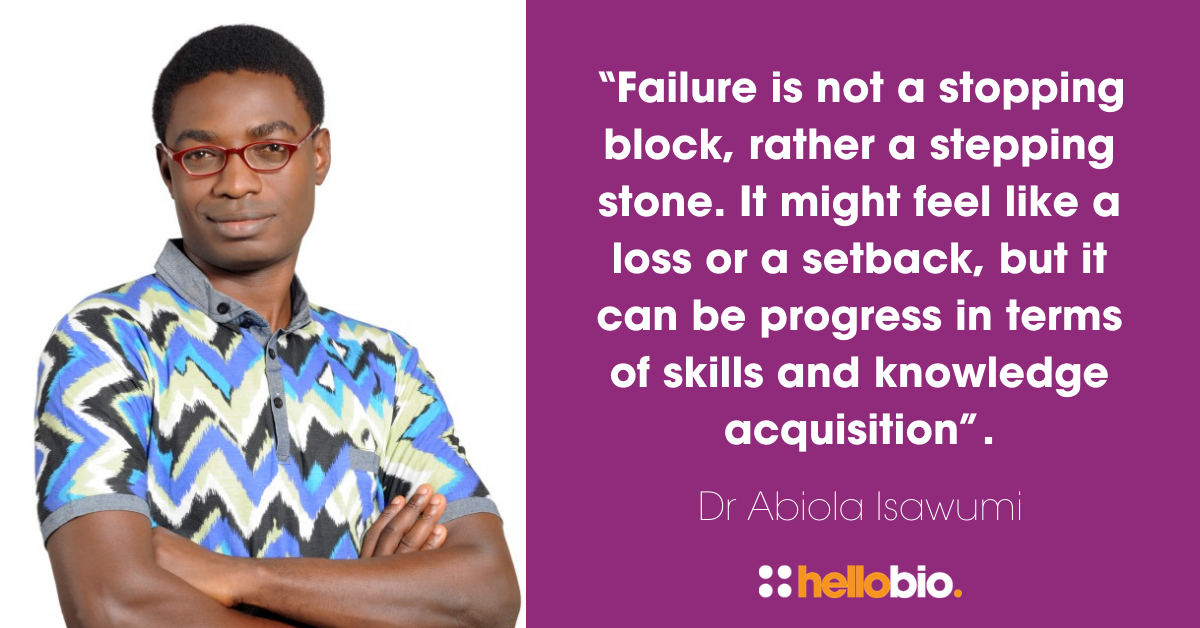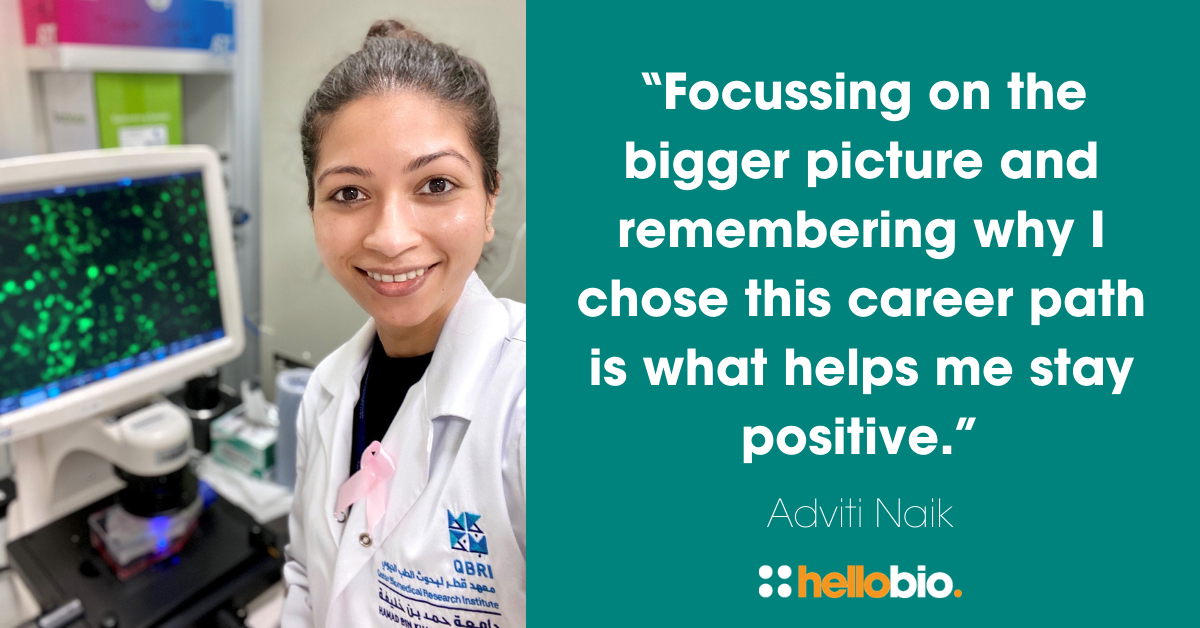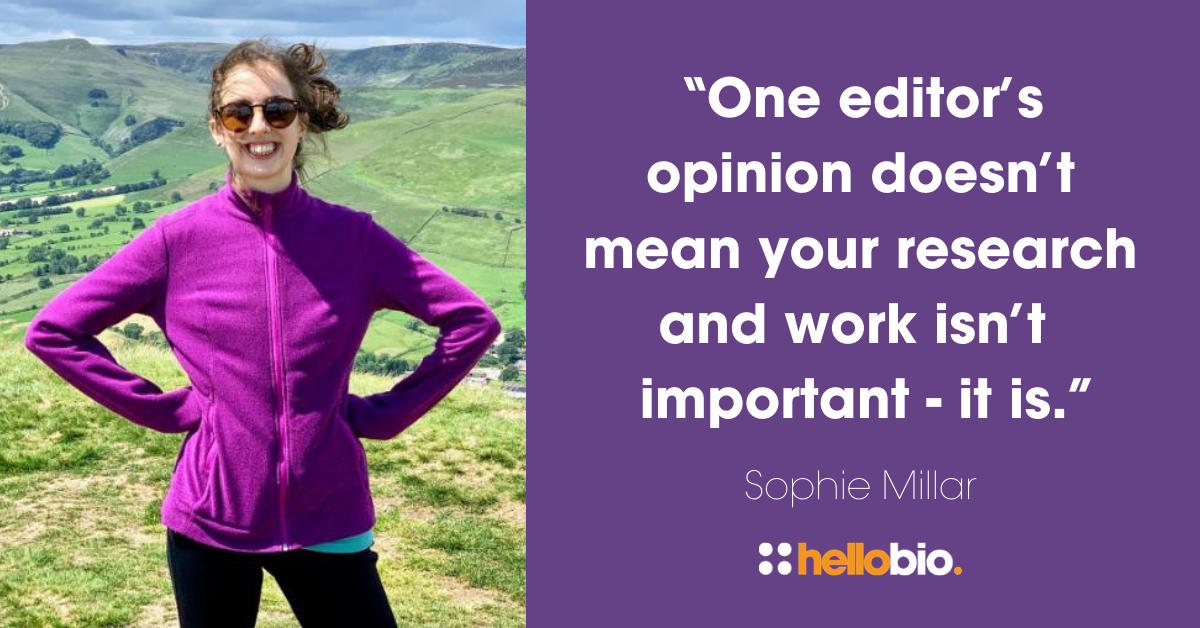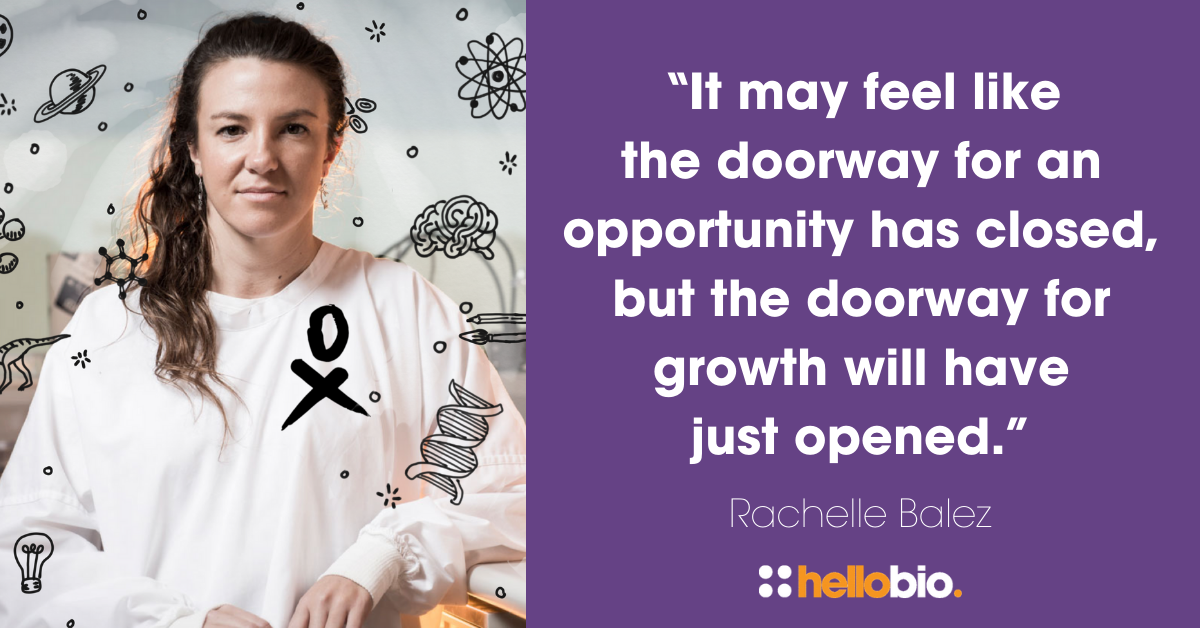The Life Scientists’ Guide to Coping With Rejection
We all encounter rejection at some point in our lives, and for scientists rejection can come in many forms – whether it’s being refused funding for a research project, having a paper or journal rejected by a publisher, or being turned down for a job role or postdoc position.
Most of us will face rejection at some stage of our careers. While we can’t avoid it, we can choose how we cope with it. Rejection in any form can feel painful and disheartening, so how do we stay strong in the face of setbacks? And how do we ensure rejection doesn’t have a lasting adverse effect on our mindset, career plans or long-term goals?
We spoke to members of our life science community from around the world about their experiences of rejection, how it affected them at the time, how they dealt with it, and how it ultimately shaped their careers.
Rejection is part of life
From our first university application to a request for a postdoc position, rejection can happen at any point in our academic lives. Our desire for success often means taking risks and putting ourselves in the line of fire. You’d have to be extremely lucky to sail through a career in science without being turned down for something at some point.
“It is extremely normal in science to experience rejection, even Nobel prize winners have encountered rejection at some point.” – Dr James Quinn
Our Lab Heroes Awards 2020 winner, Katarina Ilic of the Croatian Institute for Brain Research, told us more about her first experience of rejection following an application for a postdoctoral fellowship: “At the time I had everything planned. I’d finished and defended my PhD thesis with the highest grades, found the perfect lab for my project, wrote a two-year plan that I personally thought was quite impressive and interesting. However, the fellowship committee disagreed and I didn't even make it through the first round. What I quickly learned was that it was quite normal. I talked to my colleagues who were successful and respected scientists in their fields, and all of them had quite the collection of rejection letters.
Katarina continued: “I think all of us have encountered rejection, or will at some point in our scientific career.”
Feeling disheartened by rejection is perfectly normal
Nobody is immune to the feelings that come with rejection. Sadness, confusion, frustration and upset are all perfectly normal reactions to losing out on something you had your heart set on. And while these feelings may linger for a while, it’s important to remember that they’re only temporary.
“It is perfectly alright to feel sad and down during setbacks or stressful periods – it doesn’t mean you are weak or have failed. The real problem comes when you go down and stay down.” – Dr Enitome Bator
If you’re feeling disheartened by a rejection, allow yourself to feel the feelings and give yourself whatever you need to process them. That might be speaking to friends or colleagues about how you feel, or asking for advice from senior colleagues. Ultimately though, it’s important not to dwell in the negative for too long and instead look to the lessons you can learn.
Rachelle Balez, research assistant at the Illawarra Health and Medical Research Institute, told us: “Rejections hurt (they always will) as they are a very blunt form of feedback. Acknowledge the hurt, maybe have some drinks at the bar with friends to commiserate, but then look to see what you can learn and how you can improve. It can be easy to miss an opportunity for growth if you are busy licking your wounds.”
Step back and take time to process
After receiving a rejection, it’s vital to take a step back, allow yourself time to process the feedback and consider what you’re going to take from it. You may – for a while – feel as though the world has ended, but after allowing yourself time to reflect and regroup there’s every chance you’ll start looking on the bright side sooner than you think.
Katarina Ilic’s advice is: “Focus on something else, another project, another part of your life - even Netflix if it helps! Then look at the rejection again with a fresh pair of eyes and try to critically analyse what you could have done better.”
Dr James Quinn adds: “Take some time to process it. As my friend once said to me, in the grand scheme of things, when you look back in the future... it will seem like nothing.”
Dr Enitome Bafor, a postdoctoral researcher at the National Cancer Institute told us about the ‘step back’ method she uses to help her deal with setbacks: “Events are not going the way you planned… the pressure is mounting… you might be feeling overwhelmed, distraught, confused, unsure or stressed. What is your reaction? Are you giving up? Labelling yourself as a failure? Whatever your reaction, it is time to stop for a moment and take a step back. This might be anywhere from a few hours, to a few days or even weeks. Stop and work up from the basics. Ask yourself what went wrong and why. Did you have the right approach? Seek advice from people with different perspectives and experiences, close associates… neutral associates… even people who do not know you. Keep an open mind and map out some different strategies that are unique to you and your situation. You will soon be ready to bounce back.”
To learn more about the ‘step back’ method, read ‘Building Resilience in Scientific Research & Academia’ by Dr Enitome Bafor.
Don't give up!
A natural reaction to rejection is to want to throw in the towel. When you’ve put your heart and soul into a fellowship application, or given your finest performance in a critical interview and it still wasn’t enough to get you over the finish line, it’s easy to feel dejected and wonder whether you have anything left to give. Building resilience is essential to moving through these feelings.
“Resilience is essential… failure is not a stopping block, rather a stepping stone. Failure doesn’t mean you have to give up on any of your research dreams. Though it might feel like a loss or a setback, it can be progress in terms of skills and knowledge acquisition.” – Dr Abiola Isawumi
Resilience, in simple terms, means the capacity to recover quickly from difficulty, withstand adversity and bounce back from challenging events. As researchers, having resilience is essential when facing setbacks resulting from failed experiments or unexpected lab results. For hundreds of years scientists have persevered through adversity to make incredible discoveries, which without resilience might never have been brought to light. In Abiola Isawumi’s guest blog, Resilience & Success In Science: A Researcher’s Perspective, he says: “Resilience goes beyond ‘not quitting’ – it is having the mentality that makes you ask: ‘If I don’t, who will, and who can?’”
"What doesn't kill you makes you stronger."
It can feel difficult to find solace in this well-known saying when you’re in the depths of despair following a tough rejection, but there’s real scientific evidence behind it.
A2019 study by the Kellogg School of Management at Northwestern University, Illinois, looked at the records of a group of young scientists who applied for research grants between 1990 and 2005, and found that those who were denied funding early in their careers went on to publish just as many papers later in life as the group who landed a grant.
They concluded that those scientists who were initially unsuccessful actually benefited from their early setback and ended up being more successful in the long run. It’s thought that the act of failing itself may have pushed the frustrated scientists to improve – this is known as a growth mindset.
Learn from the experience
Once you’ve had time to reflect on what happened, you will have the opportunity to learn a lot from your experience of rejection. It could open your eyes to different possibilities, or might even help you realise that it wouldn’t have been the right move for you in the long run.
Brittany Berdy, a project manager at the Broad Institute of MIT and Harvard, told us how a rejection for a position away from academia helped her to realise that it wasn’t a move she was truly ready for: “I was rejected from the first job I applied to out of graduate school… I thought I was a really good fit, so this was kind of devastating, terrified me about my prospects of finding a job after graduate school and made me question myself.”
She continued: “However, I ended up simultaneously applying to a postdoc position (which I took). And I realised later on that when I’d interviewed for the EHS position, I’d talked a lot about my research, more than you would want to hear from someone claiming to be “ok” with leaving research! The bottom line was I was not ready to leave academia, and they must have known it. The experience forced me to reevaluate what I wanted from a career in science and helped me to apply for jobs I was maybe a bit more scared about applying for, but was ultimately more passionate about.”
Focus on the bigger picture
Remembering what you love about your chosen subject and why you want to pursue a career in science can help you see beyond the disappointment of rejection. Keep your eyes on the long-term prize, and remind yourself that there will always be more than one route to success.
“Focussing on the bigger picture and remembering why I chose this career path is what helps me stay positive.” – Adviti Naik
Making a difference to the world and humanity is the reason many of us pursue a career in science, and it’s what drives us to succeed. Envisioning the difference your work could make to the world can motivate you to push through disappointment and keep moving towards your goals.
Dr Abiola said: “Researchers could easily be tempted to throw in the towel, especially when they don’t achieve the success they expect… but what keeps them going is the commitment to providing progressive insights which could initiate a solution that genuinely advances the course of humanity.”
Professor Stuart Maudsley, Vice Chair of the Department of Biomedical Research at the University of Antwerp, also spoke to us about motivation as a powerful tool in the face of setbacks. He said:: “For scientists, the motivation is to make the world better for other people, in huge ways or in small ways, it doesn’t really matter how big your impact is, as long as your impact is positive and helps others.”
Another time, another place...
Sometimes your ideas may be great, but the timing just isn’t right. Just because your research may not be the hot topic of the moment, it doesn’t mean it’s not worth doing or publishing.
Sophie Millar, of the European Association for the Study of Obesity, told us about her first published paper which was rejected by seven different journals before being published: “It was a methodologically-sound literature review, but the response was always the same – “not currently a high priority for publication” – in other words, it’s nice but not exciting enough for us to publish right now. It’s a reality for a lot of work that is informative but not necessarily ground-breaking – and it takes persistence and mentorship to keep trying after all those rejections! The paper has now been cited 34 times since publication, so at least someone was interested in the end! One editor’s opinion doesn’t mean your research and work isn’t important – it is.”
Rejections shape our path as much as our successes
While you may have had your heart set on a particular project or job role for months or even years, if it doesn’t work out there’s every chance that something bigger or better could be just around the corner.
Keeping an open mind instead of allowing yourself to become dejected will allow you to consider other possibilities you might have disregarded or not pursued, and you never know where a different path might lead you.
Dr James Quinn, a research fellow at the Alzheimer’s Clinical & Translational Research Unit at Massachusetts General Hospital, told us how a rejection for his dream fellowship in Sweden left him feeling deflated, but turned out to be the best thing that could have happened for his career.
He said: “I was really sold on this fellowship and thought I had written a fantastic proposal, but I was not selected for interview. The rejection really hurt me at the time. I had just returned from travelling and had quit my interim job at a consulting firm. I was completely out of work… however, this was probably the best thing that could have happened to me! It opened so many more doors than I could have realised at the time because I went back to my consulting job, had an incredible time and was then offered a Postdoc at Massachusetts General Hospital in the US. It couldn’t have worked out better and I’m having a fantastic time in my current position!”
Being turned down for an honours research project took Rachelle Balez’s career in a different direction too. She told us: “I was interested in two very different projects; one working with mouse models and the other with induced pluripotent stem cells. I interviewed for them both but was unsuccessful with the mouse model project. The rejection knocked my confidence as I thought I had interviewed well.
She continued: “Fortunately, I was accepted for the stem cell project. Fast forward eight years and I am now close to completing my PhD using induced pluripotent stem cells to model Alzheimer's disease – a project developed from my honours research and one I absolutely love! I often reflect on how different my research pathway may have been if it wasn't for that first rejection, which taught me that rejections shape our path as much as our successes.”
Whether you believe everything happens for a reason, or we create our own destinies, a positive mindset will always help you find the silver lining in that negative cloud. Adviti Naik, of the Qatar Biomedical Research Institute, told us: “Personally, I have learnt to believe that everything happens for a reason, so don't stress too much when you've hit the lows. Things have a way of working out and most often recognising serendipity in science is what turns projects and careers from mediocre to ground-breaking.”
Onwards and upwards
In the face of rejection, remember that some of the greatest scientists and academics in the world faced knockbacks in their careers before going on to achieve incredible things. You only need to Google “famous scientist rejections” to find lists of rejected papers that went on to win Nobel prizes and world-changing ideas that were originally dismissed – including Darwin’s Theory of Natural Selection and Pasteur’s germ theory of disease.
As Katarina Ilic says: “It is part of the job. But in the end, the main thing is not to give up. Science wouldn’t be where it is today if people gave up.”
What you learn from rejection will always prove valuable moving forward. It’s a chance to grow and learn more about yourself, both as a person and as a scientist.
Rachelle Balez adds: “It may feel like the doorway for an opportunity has closed, but the doorway for growth will have just opened.”
Maintain a positive attitude and you can learn from any negative experience. Don’t let rejection define your career. It might just be the best thing that could have happened to you.
-------
What are your experiences of rejection and how did you overcome them? Do you have a ‘rejection to success’ story that would be inspiring to others? If so, we’d love to talk to you about contributing to our blog.
Send us a message on Twitter @hello_bio or email hello@hellobio.com. We’d love to hear from you!
_________________________________________________
If you enjoyed this article, why not check out the other resources available on our blog. We are passionate about supporting life scientists, early career life scientists and PhD students - with really low- priced reagents and biochemicals, grants and resources to help with both personal and professional development. We know how tough it is - so we hope you find these helpful!
Advice & guidance for life scientists
Click below to view our essential guides and articles to support life scientists, PhD students & early career life scientists:
Wellbeing for scientists
Click below for our resources to help improve your wellbeing:
Technical resources
Try our Molarity Calculator: a quick and easy way to calculate the mass, volume or concentration required for making a solution.
Try our Dilution Calculator: an easy way to work out how to dilute stock solutions of known concentrations
And - when you get to the stage of planning your experiments, don't forget that we offer a range of agonists, antagonists, inhibitors, activators, antibodies and fluorescent tools at up to half the price of other suppliers - click below to see how we compare with other suppliers:





